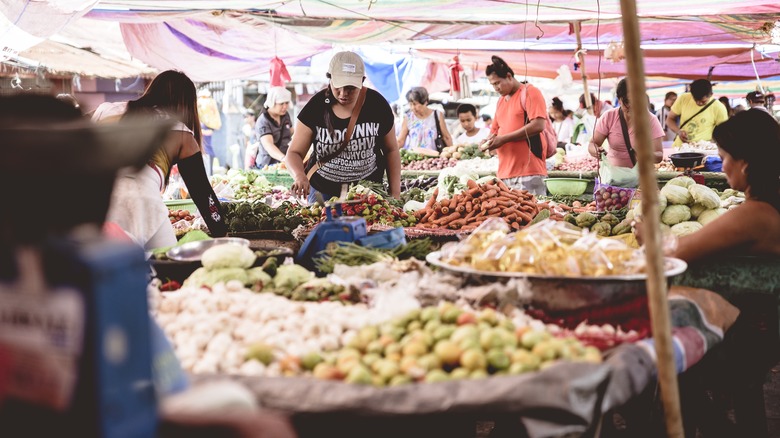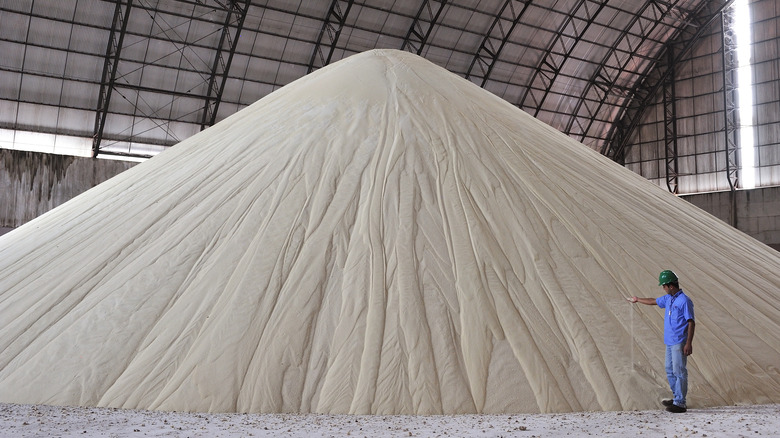The Harsh Toll Food Inflation Is Taking On The Philippines
Like nearly every country in the world, the Philippines has been experiencing record-setting inflation this year with costs for food and energy spiking and creating serious financial concerns for consumers. However, unlike many other countries, the Philippines is suffering from a more unique problem and inflation has caused major shortages of certain staple food products. According to Bloomberg, the Philippines is currently experiencing shortages of salt, onions, garlic, and sugar. It also faces problems with grains like rice, wheat, corn, and soybean meal, much of which it imports.
As the Carnegie Endowment for International Peace notes, the Philippines has the largest food trade deficit in its geographic region and relies on imports from other countries to supply much of its food needs. Unfortunately, as severe weather and the war in Ukraine have driven food and fertilizer prices around the globe, India and other food-exporting Asian nations have taken a more protectionist stance in recent months, greatly restricting their exports of crops like rice, wheat, and sugar. This makes it difficult for countries like the Philippines to acquire the necessary staples, even at largely inflated prices. The country's position as an archipelago also puts it at a trade disadvantage since the cost of shipping has risen significantly with the skyrocketing fuel price, making food and other imported commodities even more expensive for shoppers.
Cost of shortages
The effects of rising prices are already being felt. According to Hawai'i Public Radio, the sugar shortage has led soft drink manufacturers to slow or cease production in the country, with Coke, Pepsi, and Royal Crown issuing a joint statement on the crisis and announcing that they are working with the government to find a solution. Bloomberg notes that this could avoid significant layoffs. The shortage is partially to blame on severe weather as a typhoon damaged local fields earlier this year. However, the country's government has also played a role. It announced a plan to import 300,000 tons of sugar in August, then quickly rescinded it after newly-installed President Ferdinand Marcos Jr., in his dual role serving also serving as Secretary of Agriculture, said he didn't approve the plan, leaving no clear path forward.
As for grains, there is at least temporary relief for wheat. Australia is expecting a larger than anticipated crop despite harsh weather conditions in other producing nations (per Bloomberg). Additionally, Reuters reported that global wheat prices fell in August after Ukraine, Russia, and Turkey reached a deal to allow shipments of Ukrainian grain out of the Black Sea. However, it is uncertain how long that arrangement will last. On September 7, Russian President Vladimir Putin raised objections to the deal, stating that too many of the ships leaving Ukraine have gone to the European Union instead of developing nations, despite the United Nations reporting numbers that show the opposite (per Politico).

